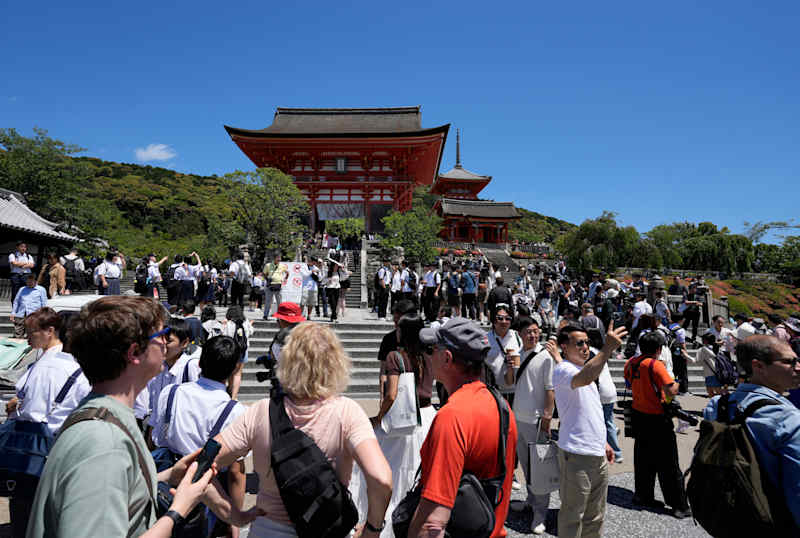Japan introduces a tourist tax where the rich pay more than the poor

In Kyoto, a tourist can pay a tax of up to €60 or more per night. A record 34 million tourists came to Japan last year.
The tourist city of Kyoto in Japan is introducing a tourist tax of up to 10 000 yen, or just over €60 per night at current exchange rates.
It’s a tax on accommodation, and a record high is planned.
The city has been collecting accommodation tax from tourists staying overnight since 2018. Until now, the maximum amount of the tax has been 1,000 yen, or about six euros per person per night.
The new tourist tax, which is supposed to be introduced in the spring of next year, is progressive and depends on the price of accommodation.
The move is expected to more than double the city’s lodging tax revenue to about ¥12 billion a year. Currently, the highest tourist tax is 1000 yen and the lowest is 200 yen.
The idea is to use the money to improve the city’s infrastructure and at the same time reduce congestion caused by overtourism.
Japan plagued by over-tourism
The number of tourists coming to Japan has been constantly increasing since the pandemic.
A weak yen and Japan’s attractiveness brought 36.8 million tourists to the country last year, the Japan National Tourism Organization said Wednesday. That’s a record number.
Tourists have also become a problem that is often covered by the Japanese media. Misbehaving tourists make headlines.
In the video below from last year, Japanese people ponder the number of tourists in Tokyo’s popular Asakusa area.
